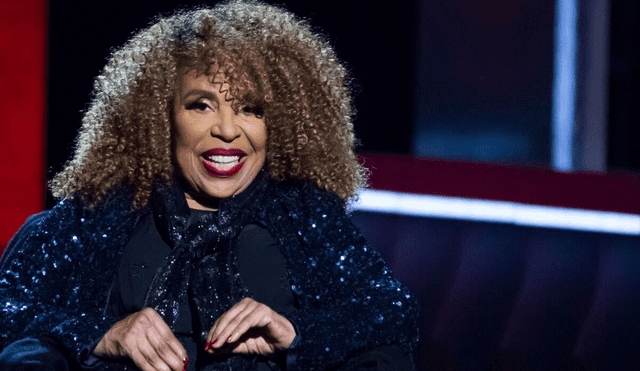Roberta Flack dies at 88: ‘Killing Me Softly’ singer’s legendary career remembered
Roberta Flack, the iconic singer known for hits like 'Killing Me Softly,' has passed away at the age of 88. Remembering her legendary career and timeless contributions to music

Grammy Award-winning singer Roberta Flack, best known for her timeless hits like "Killing Me Softly with His Song" and "The First Time Ever I Saw Your Face", has passed away at the age of 88. A representative confirmed the news to NBC News: "We are heartbroken that the glorious Roberta Flack passed away this morning, February 24, 2025".
"She died peacefully surrounded by her family. Roberta broke boundaries and records. She was also a proud educator", the statement said.
Flack's legacy as one of the most influential artists of her time is undeniable, and her songs continue to resonate with audiences across the world.
Roberta Flack's health struggles
Flack faced several health challenges in recent years, including a stroke in 2016 and dizziness that led to hospitalization in 2018. However, she made a remarkable return to the stage, continuing to perform the classic songs that made her famous.
In November 2022, it was revealed by a spokesperson that Roberta Flack had been diagnosed with ALS, also known as Lou Gehrig’s disease, and was no longer able to sing.
Flack’s manager, Suzanne Koga, stated in a press release that the progressive illness “has made singing impossible and speaking difficult.”
Early life and musical beginnings
Born on February 10, 1937, in North Carolina, Roberta Flack was the daughter of a church organist and began playing classical piano at a young age. Her musical talents led to a scholarship at Howard University in Washington, D.C., where she began to develop her craft.
It was there that jazz musician Les McCann discovered Flack’s unique voice while she was performing at Mr. Henry’s nightclub in Washington, D.C. McCann was captivated by her powerful, emotive voice, saying, “Her voice touched, tapped, trapped, and kicked every emotion I’ve ever known.”
Roberta Flack's iconic hits
In 1969, Flack’s career took off after McCann helped her sign with Atlantic Records, where she recorded "The First Time Ever I Saw Your Face", a song written by Ewan MacColl. The track became a breakout hit, reaching No. 1 on the Billboard Hot 100 after being featured in Clint Eastwood’s 1971 film "Play Misty for Me". This success led to her winning Grammy Awards in 1973 for "Record of the Year" and "Song of the Year".
Flack's following hits, including "Killing Me Softly with His Song" and "Feel Like Makin' Love", solidified her place as one of the best-selling artists of the 1970s. Collaborating with Howard University classmate Donny Hathaway, she created a series of soulful, unforgettable tracks that became staples of R&B music.
Donny Hathaway's suicide
In 1979, the tragic death of Donny Hathaway from a fall in New York hotel room that was ruled a suicide. This deeply affected Flack, both personally and professionally. Reflecting on Hathaway's struggles, she described him as “a genius” whose emotional highs and lows impacted both his music and personal life.
Despite the pain, Flack continued to thrive, partnering with Peabo Bryson in 1980 for the hit "Tonight, I Celebrate My Love". She also enjoyed success in the early 90s with "Set the Night to Music", a duet with Maxi Priest.
Roberta Flack's legacy
Flack’s influence on music extended beyond her own hits. In the 1990s, her iconic song "Killing Me Softly" was reimagined by the Fugees with Lauryn Hill’s lead vocals. The 1996 version topped charts worldwide, introducing Flack's music to a new generation. Later in her career, Flack was honored with a star on the Hollywood Walk of Fame in 1999, and performed for South African President Nelson Mandela during a tour in 1997.
In addition to her music career, Flack was dedicated to educating the next generation of musicians. She founded the Roberta Flack School of Music at the Hyde Leadership Charter School in the Bronx, providing free music education to underprivileged students. Even in her later years, Flack remained active in music and charitable causes, touring well into her 70s and 80s, and performing at events like the Jazz Foundation of America’s charity concerts.














